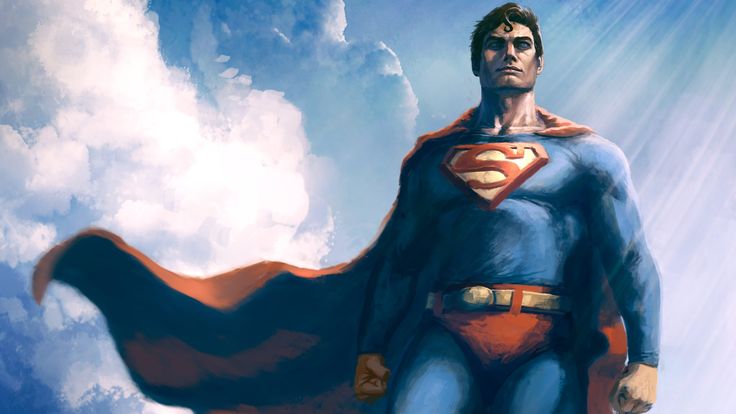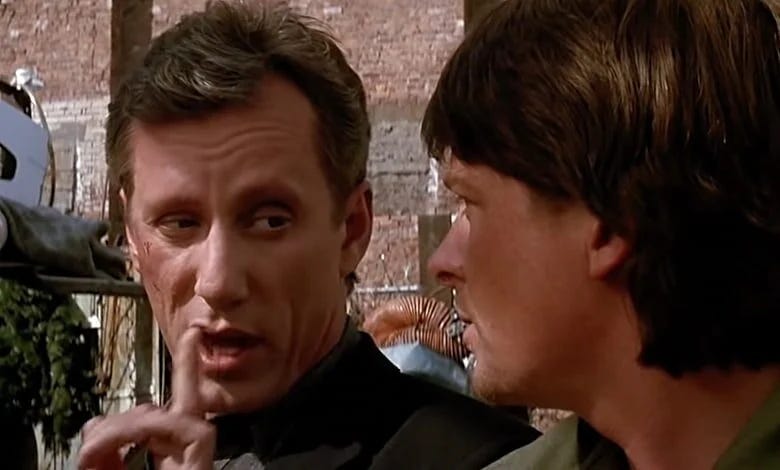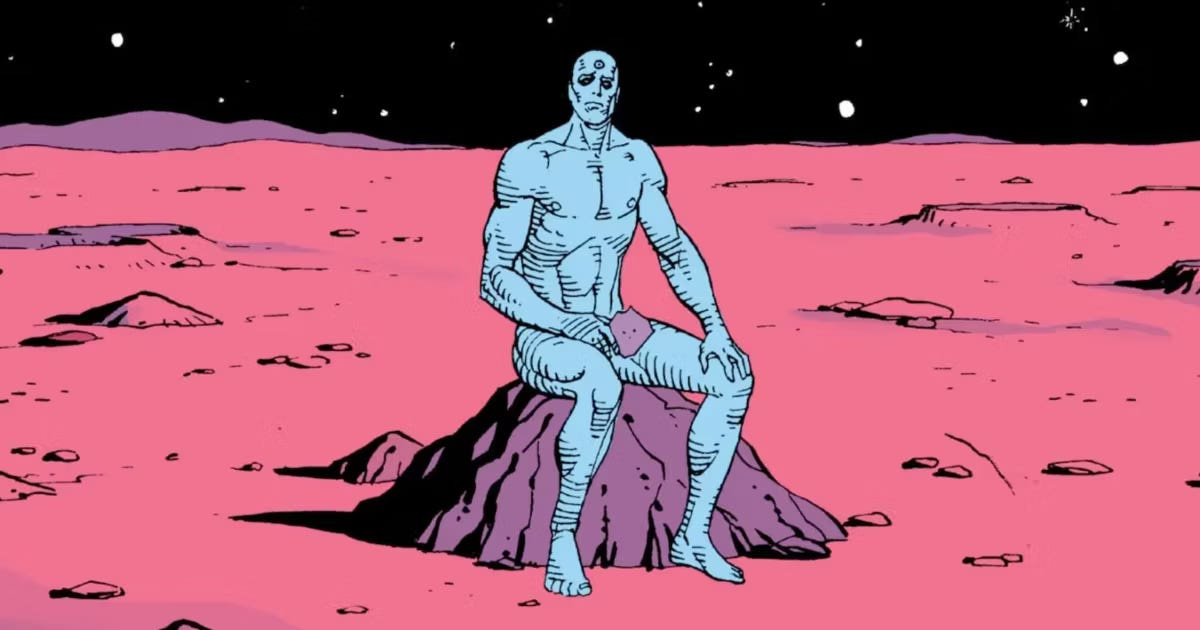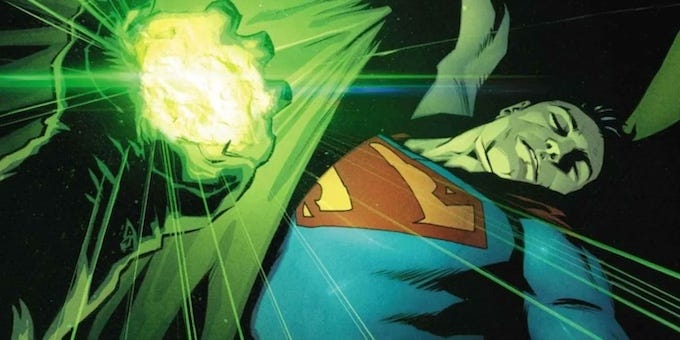
"Superman" is the worst character to write
Share
Writing gods like actual interesting human beings is impossible. Literally.
A super-powered, insanely strong alien with laser eyes, flying through the air, with god-like powers, and yet no willingness to subvert humanity to his will…sounds realistic!Read this article on our Substack HERE!
****
In a recent interview, James Gunn mentions that the moment “Superman” cracked for him in writing the script, was asking himself the question of “what if my dog had superpowers”?
Going out on a limb, I’m going to assume Gunn was wrestling with how to tackle Superman as a relatable character. Because writing a nearly god-like, nearly-immortal being (like in my graphic novel series “AEON”) is very hard.
And the question is, why is writing a god that difficult?
Because all drama depends on something called “stakes”. And “stakes” is essentially having to make choices based on not having control over the outcome over those choices—there could be a good outcome, or a bad outcome. And the harder it is to make those choices, the more unknowable the outcome—the higher the “stakes”.
And then the question is: what exactly makes a choice hard?
It’s a choice where there’s two equally bad outcomes.
What does that mean?
Well…life-and-death choices. If a “good” outcome is one that positively affects your survival—that is, because of the choice you made, lessens the chances that a piano will fall on your head—a bad outcome is one that’s going to negatively affect your survival, aka you choose something where the outcome is a piano does fall on your head.

Struggle is “drama”: No struggle, no drama
You heard the phrase, “struggling to survive”, right? What does that mean exactly?
It’s a very human-centric phrase…and it means increasing your chances of survival by reducing the odds of getting killed. Death is always assured, but if the work of the human is to avoid it as much as possible, then that’s the…struggle to survive.
But do gods…struggle? Gods don’t deal with death—that’s literally their definition, their raisin deiter.
A god…doesn’t really deal with human-like stuff like death.
If the god doesn’t “struggle”, because ipso facto a god isn’t a human being, as a result, writing a “god” like a human character is impossible. Not just “really hard”. Not just, “in the hands of the right writer…” No—like, impossible. Gods do not fall prey to our emotions, our life experiences, our troubles—all framed and defined within the context of death. Gods do not have to make decisions based on how best to survive. Indeed—if you don’t need to “survive”, do you have to worry at all…? Do you even need to think at all?
If the very essence of “human-ness” is the spectre of death hanging over our heads, and this fear is what fuels drama, then gods by nature of not having this “human-ness”—have no drama.
Portraying gods, as a result, on their own, is…boring.
Gods, in order to be interesting in a writing (that is, “dramatic”) way, ironically have to be contextualized and framed by the weaknesses and frailties of human beings.
It is no wonder that Gunn made the writing moves he did of the latest Superman—a powerful dude yes, but “humanized” with doubts, worries, and the unpredictability of “man’s” best friend—a dog. A god wouldn’t need to worry about having a friend—gods don’t worry. Anything that actually would like a dog as a pet, is a human.
Being a human is a tree full of drama-juice just waiting to be tapped and boiled off and distilled into pure human entertainment. Because human’s lives are finite. Drama is connected to meaning is connected to life-and-death.
So if gods kind of suck as human beings…what is their function anyways then?
The function of the god—the meaningless servant of humans
The answer is simple: being a god is everything humans want to be (or think they want to be)—the antidote to the fear of Death.
Powerful enough to defy the normal blow of Death to the physical body. Able to surmount the physics of reality—those same dastardly physics that box us within rules of movement—and bend it to Our will.
Time and Space no longer have meaning, as those require rules and explanations and adherence. A god wills—and makes it so. Decisions have zero energy output, and maximum energy output. Existence is magical. And magic is unexpainable, ineffable—unrule-able.

A god is not confined by anything. A god is therefore not defined by anything. A god eludes meaning itself. A god—essentially—is meaningless.
If a god is all-powerful, but also thence meaningless, it means humanity is weak, and that means that our definition of “meaning” is absolutely rooted in our weaknesses.
So how do you inject some meaning into a god? How you dramatize a god?
You have to weaken Him (Or Her, or…It. Something).
The Weakness of Gods
Let’s dip our toes into a super light-hearted subject that has no chance of ruffling feathers at all—let’s talk gods!
Gods are meaningless without human beings. There are no stories that involve just gods. The stories that do exist about gods, describe them governing humans, controlling humans via controlling reality…but also have them acting in human-like ways as well. Gods take on the best of human qualities (God) and the worst (The Dee-vil).
How ironic…even as a god attempts to escape the weakness of Humanity, it is that very Humanity…that captures the god so completely.
Look at Zeus for instance, the King of the Greek gods.
The “pantheon” of Greek gods, to begin with, are organized as a family structure, and a royal structure—human structures that only exist because of our human weaknesses and therefore need to cooperate to survive, and develop systems that facilitate cooperation for survival.
Most of Greek god narratives are pretty funny in their exploration of human pettiness. Zeus is like a bored pickup artist with too much time, spending most of his time transforming into different animals and people and deceptively banging human ladies, spawning all sorts of powerful half-human, half-god kiddies—and then the world has to deal with the outcomes of that. The other gods are depicted as all-powerful spoiled kids, who are both worthy of worship somehow but give little but crumbs in exchange for mindless worship—and on top of that, are more than willing to punish humans for the weakest slight.
Objectively, this depiction serves as a metaphor for a chaotic world in which we live—where we are at risk of any kind of danger, and nothing is truly fair, and rewards are little if they exist at all.
Another example of the “weakening”: in Christianity, Jesus died for our “sins”—our weaknesses—so that we may become “worthy” of Heaven after death. Jesus’ act of sacrifice itself is death-defying—it’s a god-like move, a lack of fear and lack of weakness—that injects immortality into the veins of Humanity. To be worthy of immortality, you have to have some immortality in ya.
The implication here is that “immortality” is essentially the lack of the fear of death. if fear defines our Humanity, then jettisoning that fear like a pop-goes-the-weasel toy brings us into the realm of the Immortal god. The way to become a god is to sacrifice your fear of death.
(Of course, it barely merits a mention that being able to sacrifice your life to achieve immortality is a handy tool to be exploited for political and societal ends…)
The interesting thing about this particular narrative of gods is that they are not interesting in and of themselves as characters—they are interesting in that they are purging the aspects of themselves associated with weakness and death in favour of immortality, which only can be ironically, contextualized within the weakness of Humanity.
“When Gods Cry: The Weakening of Superman”
The first weakening of Superman is through his family, and his friends. Any enemy hitting at Superman is going to go through his friends, family, and loved ones. This weakness of Superman—his love for his friends and family, and in this movie, pets—is his mental and emotional weakness—really, his humanity. Humanity itself is seen as a weakness, because in contrast to a god—well, of course it is.
Superman also has one major physical weakness—his susceptibility to Kryptonite, the rock “from his homeworld”, in all the flavours of the rainbow, as well as different-coloured suns (the red sun for instance).
Why mere colours in meteorites and suns affect Superman, have never really been adequately explained (and really, no need to get into the fictional logic here). But overall, from a writing viewpoint, making Superman even somewhat remotely interesting is the function of Kryptonite—because he needs some weakness injected in order to be remotely interesting as a character.
Superman’s other weakness is the inability to “penetrate” lead. Lead somehow “shields” kryptonite’s effects, but Superman also can’t see through lead. Somehow.
So Superman’s overall weaknesses: kryptonite, various colors of kryptonite that affect him in different ways, and lead. And of course—magic.
All of these “weakenings” work as fictional narrative tools to take away Superman’s powers or affect them negatively—thereby creating more dramatic conceits, and thus increasing Superman’s overall interest for the reader.
Back to Krypto: Superman’s Supergirl’s dog
Using Krypto as an entry point for James Gunn’s Superman is a good strategy to solve how to weaken Superman: first, Krypto is a super-powered dog, but still a dog, and so can’t think cognitively like a human being…Krypto is mentally weak at that level.
Second, in caring for Krypto, Superman both signals his humanity—you got to be human to care about something else—and signals Krypto is a weak and unpredictable entity to need caring and protecting and watching-over—all of which weakens Krypto as a super-powered entity that can defy physics. Krypto can’t even take a walk by himself without a leash.
Third—humans watching cute dogs are by default going to empathize with just the mere depiction of Krypto: this is what is called the “cute” factor. A god isn’t “cute”. Cuteness implies a certain kind of weakness.
All of the above inject much-needed Vitamin W (for Weakness) into the Superman tropes and mythos, with Conflict & Drama (and thus Entertainment) as the expected output.
At the end of James Gunn’s Superman movie—cashing in on the plant that Superman says he’s just “babysitting” Krypto—Supergirl shows up at the Fortress of Solitude, hammered and calling Superman a “bitch”, while thanking Superman for looking after her dog—Krypto. Superman mentions to one of the robot servants that Supergirl likes to party on planets with “red suns” (which don’t kill Kryptons, but take away their powers—seriously, how does color and radiation work together like this?) thus giving enough plot details that will set up a future Supergirl movie.
Supergirl has also been weakened—weakened by her loss of her entire race of people and her planet, and unlike Superman/Clark Kent, old enough to remember what her race of people and her planet were like. The loss (stakes, drama, conflict, & thus entertainment) is therefore calculable. Supergirl is not only physically weakened, but mentally and emotionally weakened as well—for she is not a god, she is a human being, too.
The underlying message with these depictions is that even though Superman and Supergirl have god-like powers, they are vulnerable to certain weakening variables, AND their minds remain stubbornly weak…human…
…interesting…and overall…entertaining.
—fin—


